A pipe leak can turn your day upside down fast. Water damage spreads quickly and you need to act now. A pipe leak clamp is your best friend when pipes start leaking. This guide shows you how to stop leaks fast and when to call a plumber.
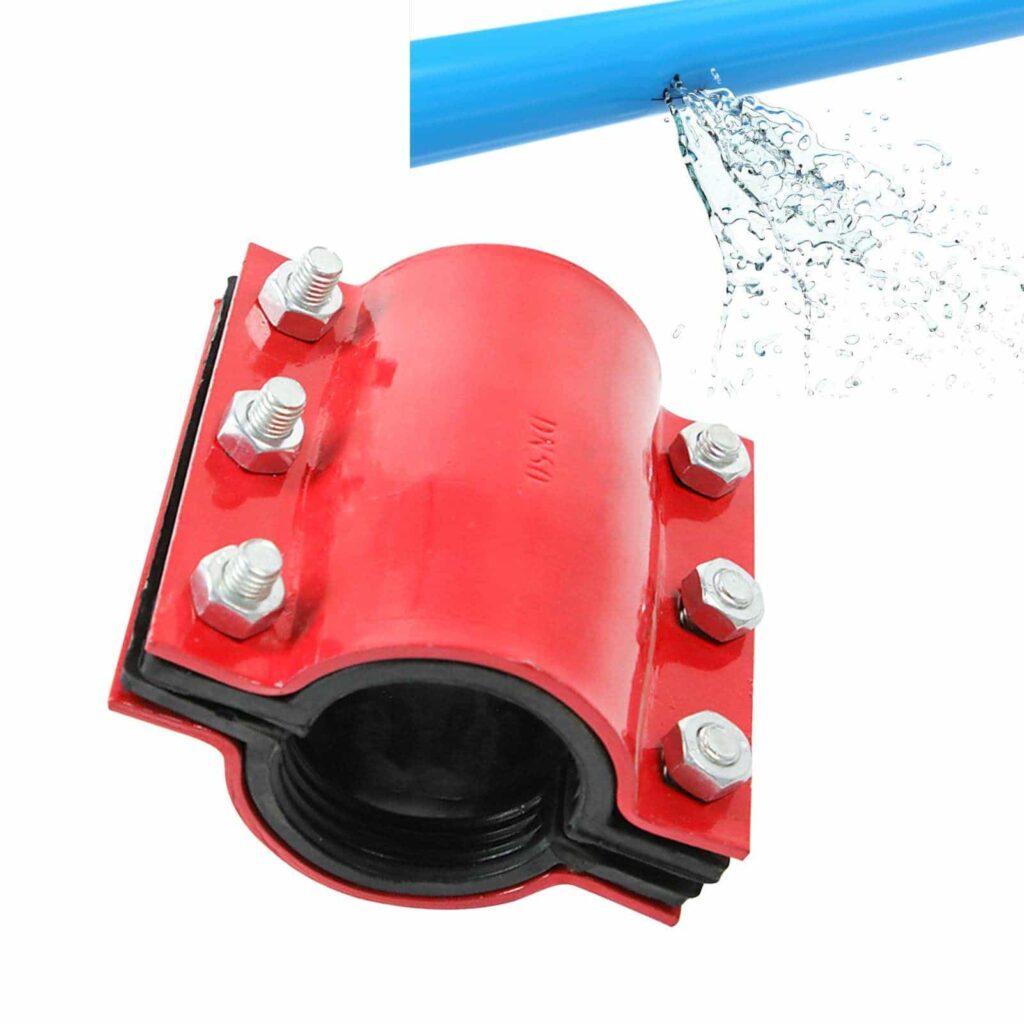
How Do You Use a Pipe Leak Clamp to Stop Water Leaks?
A pipe leak clamp is a metal band with rubber gasket that wraps around leaking pipes to stop water flow. Turn off water, clean the pipe, place the rubber gasket over the leak, wrap the clamp around it and tighten bolts evenly. This emergency pipe repair works on small leaks in copper, PVC or steel pipes as a temporary fix.
What Is a Pipe Leak Clamp and How Does It Work?
A pipe leak clamp is a metal band that wraps around a leaking pipe to stop water flow. Think of it like a bandage for your pipes. The repair clamp is an essential item for your toolbox.
Components
Every pipe repair clamp has three main parts:
- Metal band: Steel or stainless steel pipe clamp that goes around the pipe
- Rubber gasket: Creates a tight seal around the leak
- Bolts: Usually a single bolt or two bolts to tighten the clamp
How Pipe Clamps Stop Leaks
The clamp works by compression. When you tighten the bolts, the rubber gasket presses against the pipe. This creates a tight seal around the leak area. The gasket fills small holes and covers cracks to stop water flow.
Clamp vs Hose Clamp vs Repair Sleeve vs Coupling
| Type | Best For | Strength | Cost |
|---|---|---|---|
| Pipe repair clamp | Small leaks, emergency fixes | Medium | Low |
| Hose clamp to stop leak | Very small holes | Low | Very Low |
| Repair sleeve | Long cracks | High | Medium |
| Coupling | Permanent fix | Very High | High |
When to Use an Emergency Pipe Clamp vs Calling a Professional
Use a clamp for:
- Small pinhole leaks
- Emergency situations
- Temporary fix until a plumber arrives
- Easy to install locations
Call a plumber for:
- Large cracks or burst pipes
- Multiple leaks
- Hard-to-reach areas
- Permanent repairs
For complex situations, consider our professional leak detection and repair services to identify hidden problems.
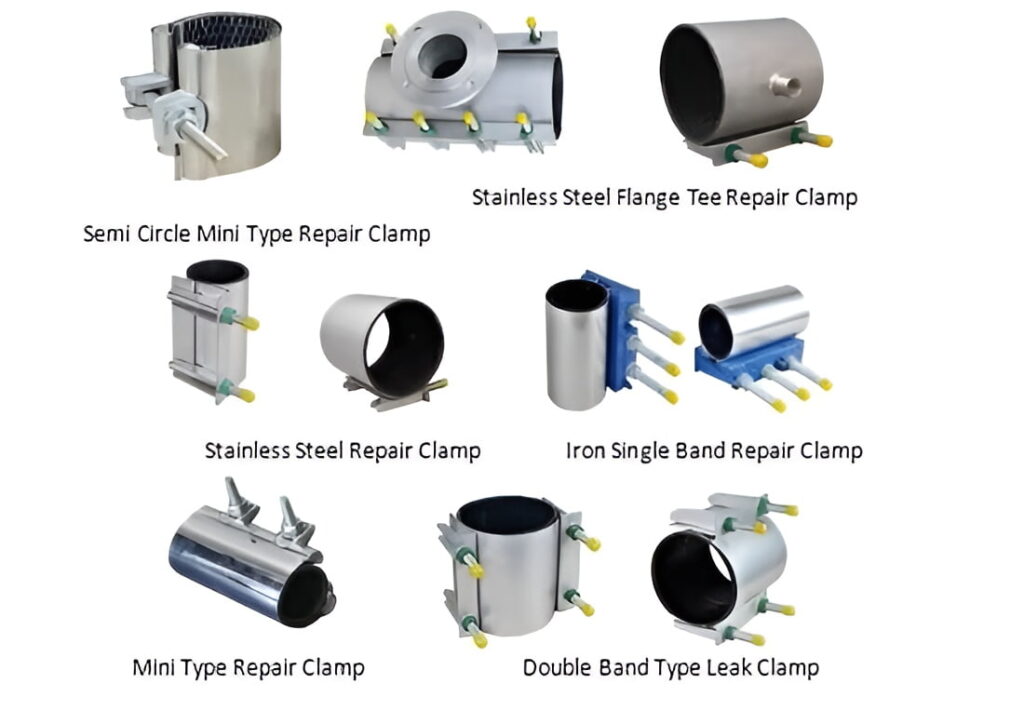
Types of Pipe Leak Clamps
Standard Two-Bolt Repair Clamps
These pipe clamps for leaks work best on straight pipes. They have two bolts for even pressure. Good for copper pipe leak clamp needs and steel pipe repair clamp jobs.
Full-Circle Wraparound Clamps
The kibosh rapid repair clamp comes in this style. It wraps completely around the pipe. Works on all pipe sizes and gives strong holding power.
Split Sleeve Repair Clamps
Best for long cracks. The clamp splits open for easy installation around a leaking pipe. Heavy duty options work on high-pressure lines.
Rubber Clamp Options
Flexible rubber clamp for pipe leaks adapts to different pipe shapes. Works on PVC, copper and steel pipes. Easy to install but not as strong as metal clamps.
High-Pressure Industrial Clamps
Used for pipe systems with high water pressure. Made from stainless steel pipe materials. More expensive but long-lasting.
Quick-Fix Temporary Solutions
When you don’t have a proper clamp:
- Hose clamp plus rubber patch
- Cable clamps assortment with rubber
- Self-fusing tape (temporary only)
Specialty Copper Pipe Leak Clamps
Copper pipe clamps for leaks need special gaskets. Regular rubber can react with copper. Use clamps made for copper pipe leak repair clamp jobs. Learn more about different types of plumbing pipes and their specific requirements.
Hose Clamps as Alternative Leak Stoppers
A hose clamp to stop leak works for tiny holes. But they have limits:
- Only for very small leaks
- Low pressure only
- Not for permanent repair
For garden hose issues, check our guide on garden hose pipe repair.
Diagnosing the Leak Before Clamping
Confirm the Source
Make sure water comes from the pipe, not:
- Loose fittings
- Valve problems
- Condensation
Assessing Leak Severity
Check if you have:
- Pinhole: Tiny hole, easy fix
- Crack: Longer split, needs bigger clamp
- Burst: Large break, call plumber now
Evaluating Pipe Integrity
Look for:
- Corrosion around the leak
- Soft or thin pipe walls
- Multiple weak spots
Measuring Pipe Size
Measure the outside diameter. Most pipe diameters are standard:
- 1/2 inch
- 3/4 inch
- 1 inch
- 1.5 inch
Emergency Pipe Leak Repair: Step-by-Step Guide
Step 1: Shut Off Water
Turn off the main water valve or local shutoff. If the leak has started and you can’t find the valve, reduce pressure by opening faucets.
Step 2: Assess the Damage
Check:
- How fast is water flowing?
- Where exactly is the leak?
- Is the pipe still strong?
Step 3: Choose the Right Clamp
Pick a clamp that fits your pipe size. The clamp can be used on copper pipe, PVC or steel pipe based on the gasket type.
Step 4: Prepare the Pipe
- Dry the area completely
- Clean off dirt and corrosion
- Make the surface smooth
Step 5: Install the Clamp
- Place the gasket over the leak
- Wrap the clamp around the pipe
- Tighten bolts evenly
- Don’t over-tighten
Step 6: Test the Repair
Turn the water back on slowly. Check for:
- Any remaining drips
- Proper seal
- Clamp stability
Step 7: Clean Up Water Damage
- Remove standing water
- Dry wet areas
- Document damage for insurance
Safety Tips
- Watch for electrical wires near water
- Be careful on wet floors
- Don’t work on hot water pipes when hot
For major burst pipe situations, read our detailed guide on how to fix a burst pipe DIY vs professional to make the right choice.
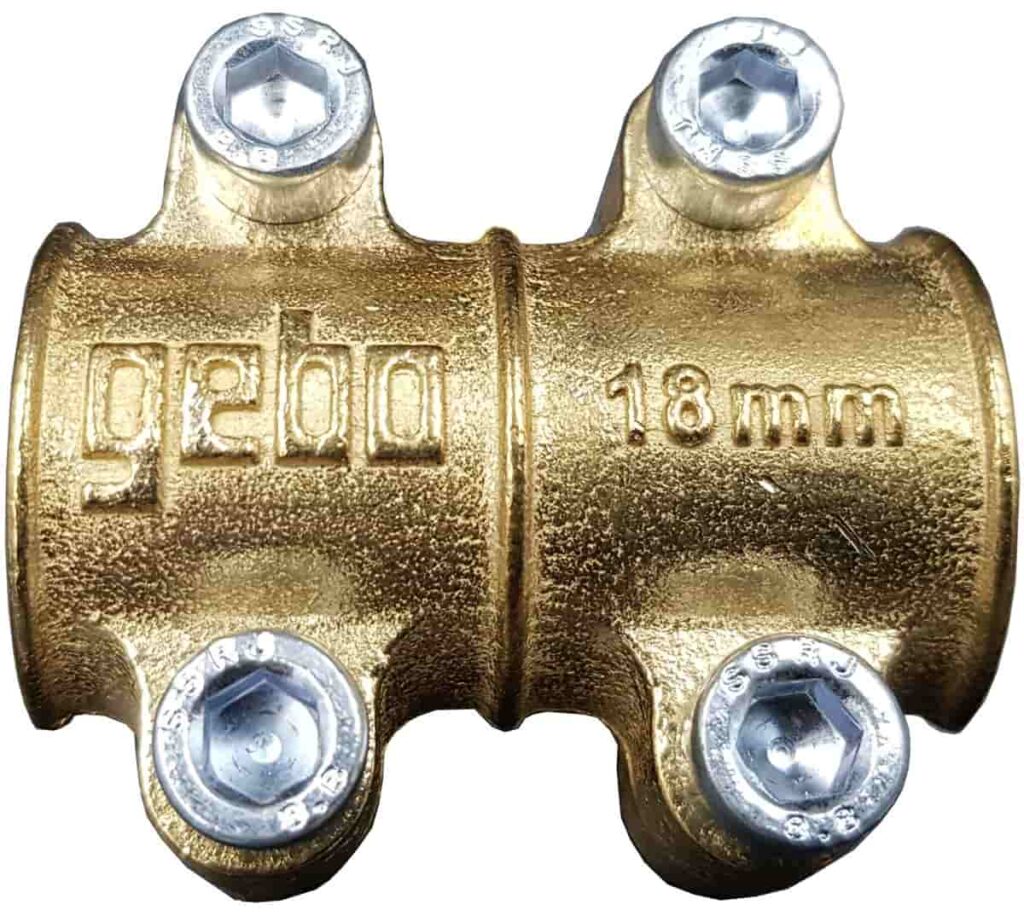
Copper Pipe Leak Repair: Special Considerations
Why Copper Pipes Get Pinhole Leaks
Copper pipes develop leaks from:
- Water chemistry problems
- Corrosion over time
- High water velocity
- Age of the pipes
Best Clamps for Copper
Use copper pipe leak repair clamp with:
- Non-reactive gaskets
- Stainless steel bands
- Proper size for copper pipe diameters
Preventing More Corrosion
- Test your water quality
- Install water treatment if needed
- Check for other weak spots
Consider our water filtration systems to protect your pipes from corrosive water.
Temporary Fixes When You Don’t Have a Proper Clamp
Rubber Patch Plus Hose Clamps
- Cut rubber from inner tube
- Place over leak
- Secure with multiple hose clamps
- Temporary fix only
Self-Fusing Tape with Clamp
- Wrap leak with silicone tape
- Add clamp over tape
- Better than tape alone
What NOT to Do
Don’t try these myths:
- Pencil in the hole
- Wooden plugs
- Just tape alone
For persistent clogged pipe issues that might cause pressure problems, see our complete guide to fixing clogged pipes.
Cost Considerations
DIY Costs
| Item | Price Range |
|---|---|
| Basic clamp set | $15-30 |
| Heavy duty clamp | $25-50 |
| Professional grade | $40-100 |
Hidden Costs of Waiting
Delaying repair causes:
- Water damage to walls
- Mold growth
- Higher water bills
- Structural damage
Professional vs DIY
DIY saves money short-term but:
- May not last long
- Could cause more damage
- Might not meet codes
- No warranty
Learn about burst pipe repair costs to budget for professional repairs.
When to Call a Professional Plumber
Signs You Need Professional Help
- Multiple leaks appearing
- Large cracks or burst pipes
- Leaks keep coming back
- Water pressure drops
- Signs of slab leaks
Limitations of DIY Repairs
Clamps may not work for:
- High-pressure systems
- Hidden leaks in walls
- Code compliance needs
- Permanent solutions
Our reliable pipe repair service handles complex repairs that go beyond temporary fixes.
Los Angeles Water Issues
LA water can cause:
- Mineral buildup
- Pipe corrosion
- Scaling problems
- Pressure variations
Frequently Asked Questions
Q: How long do pipe leak clamps last?
A: Emergency clamps last 6 months to 2 years. They’re meant as temporary fixes.
Q: Can I use a hose clamp to stop a pipe leak?
A: Yes, for very small leaks and low pressure. Not for permanent repair.
Q: What size clamp do I need?
A: Measure your pipe’s outside diameter. Add 1/4 inch for the clamp size.
Q: Are rubber clamps better than metal?
A: Metal clamps last longer. Rubber clamps work better on odd-shaped pipes.
Q: Do clamps work on high-pressure lines?
A: Heavy duty clamps work on high pressure. Regular clamps are for low pressure only.
Q: How tight should I make the clamp?
A: Tight enough to stop the leak but don’t over-tighten. You might crack the pipe.
Final Thoughts: Emergency Pipe Repairs Made Simple
A pipe leak clamp gives you time to fix the problem right. It stops water damage and buys time for a permanent repair. Keep in mind that clamps are temporary fixes. Get a plumber to check the system to drain properly and fix underlying problems.
For emergency pipe repairs in Los Angeles, contact Pipe Dream Rooter & Plumbing. We’re available 24/7 for burst pipes, leaking or burst pipe emergencies and permanent repairs. Don’t let a small leak become big water damage. Request a free quote today for professional pipe repair services.
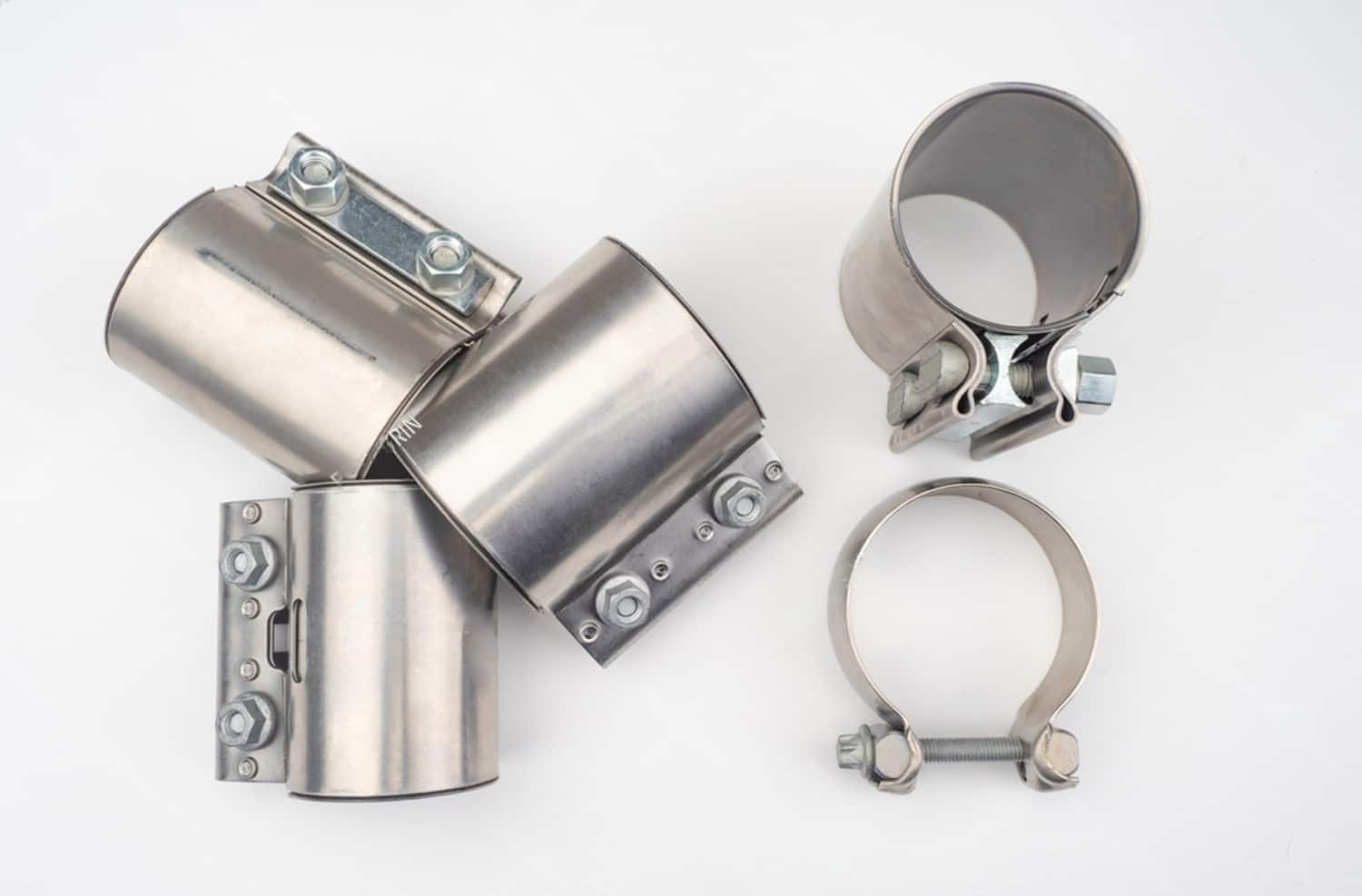






1 thought on “Pipe Leak Clamp: Ultimate Guide to Emergency Pipe Repairs”